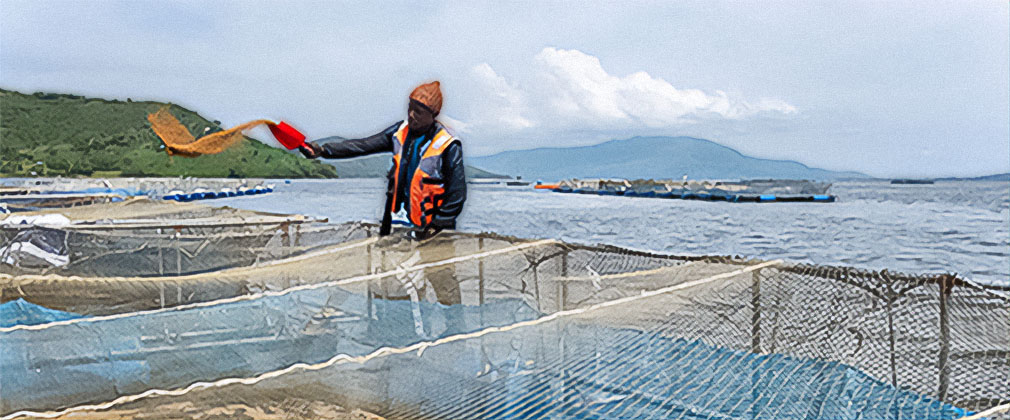Aquaculture Adapts to Covid-19 Challenges
BALTIMORE—March 15, 2021. As we enter the second year of the pandemic, many aquaculture producers are still taking things one day at a time. For Sarah Benhamo, deputy commercial director at Victory Farms, which raises tilapia in cages in Lake Victoria, Kenya, businesses and people are mostly focused on staying safe.
“We don’t have a time frame for when Covid is going to be completely out of our lives,” Benhamo told me recently. “Basically, businesses and people are trying to figure out how to continue with their daily lives.”
Some challenges facing tilapia farmers in Lake Victoria are unique to the region of East Africa, but many others are shared by aquaculture producers around the world. Benhamo’s experience with Victory Farms is echoed in a study I participated in with researchers at the Johns Hopkins Center for a Livable Future in the Bloomberg School of Public Health.
The study examines how seafood-related actors, businesses, and institutions are responding to the pandemic: There are many challenges facing the seafood sector while the pandemic continues to spread. As lead author, I hope our research can share some early lessons and jump-start the learning process so businesses can adapt and become more resilient to future shocks.
Farms are facing greater uncertainty about the future and trying new ways to market products in the face of shifting consumer demand. Farms see an increased cost of doing business, and must keep a constant focus on worker safety while remaining open.
Many countries have deemed workers in aquaculture and fisheries sectors as “essential” workers, as they provide food security for consumers, but also livelihoods for workers.
Victory Farms has, however, done better than most during the ongoing pandemic. After seeing Europe hit hard in early 2020, the company reacted swiftly by importing extra feed ahead of possible border closures.
And, as the pandemic moved to Africa, it added safety measures for on-site staff, moved non-essential workers off-site and limited visitors. The farm also secured government permits for workers to travel during nightly curfews, a public health measure that has frustrated local fishermen.
“Victory Farms has really helped our community by providing food and employing out of work fishermen,” said Benhamo. People like Sarah have important stories to share as they learn how to adapt to life in a pandemic.
Benhamo joined me and other panelists to discuss Covid-19 impacts and responses in Africa, Asia, Europe and the Americas in a recent webinar hosted by Dave Little at Stirling University. To learn more about resilience building in the aquaculture and fisheries sectors, you can find more resources here and here.
This post was published on Global Aquaculture Alliance on March 15, 2021
Image: Sarah Benhamo
